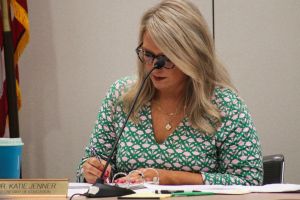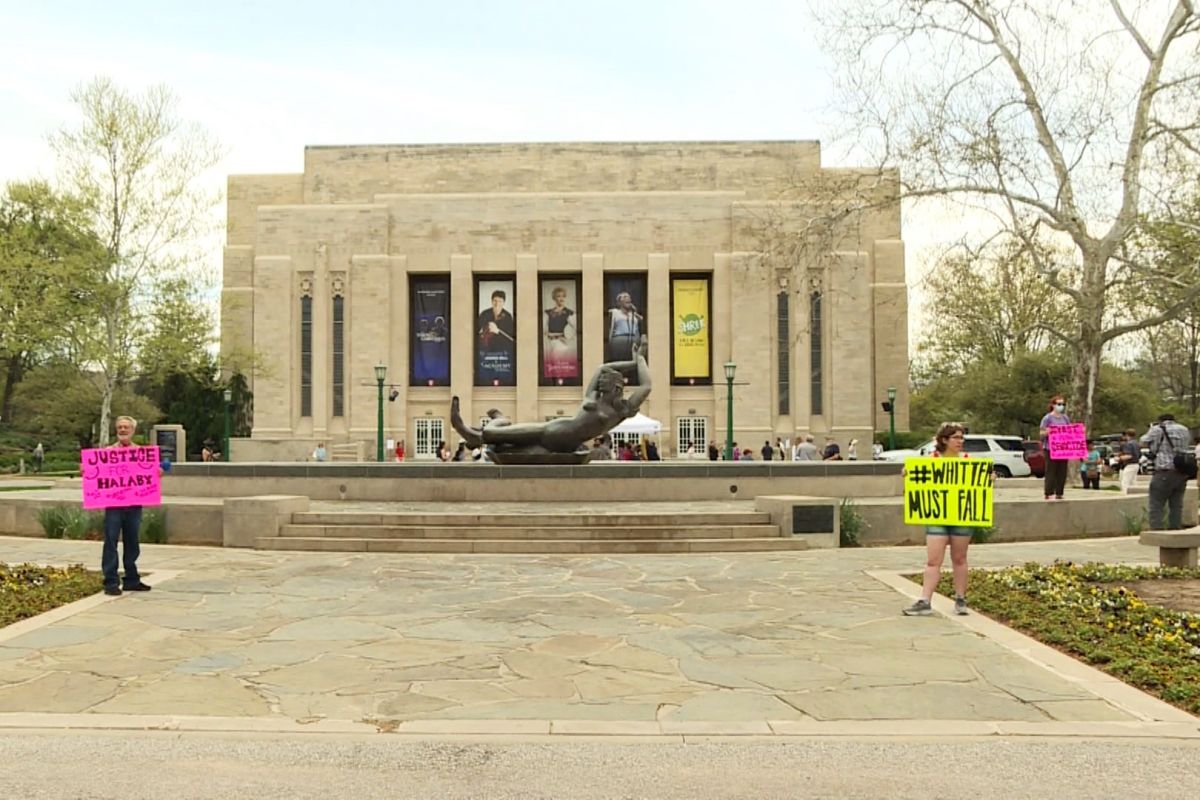
On April 16, about 900 faculty gathered at the IU Auditorium to pass no confidence resolutions against President Pamela Whitten, Provost Rahul Shrivastav and Vice Provost Faculty and Academic Affairs Carrie Docherty. (Lucinda Larnach, WTIU)
Indiana University Bloomington faculty members this week declared no confidence in three university leaders: President Pamela Whitten, Provost Rahul Shrivastav and Vice Provost Faculty and Academic Affairs Carrie Docherty. But, they’re still waiting to see if anything will change.
On April 16, about 900 faculty gathered at the IU Auditorium to pass three no confidence resolutions. At the meeting, they voiced their concerns about IU’s leadership and the changing direction of the university. Votes for Docherty, Shrivastav and Whitten were held separately in that order, and Whitten received the highest percentage of votes for a no confidence resolution at 93 percent.
The resolutions are advisory, and faculty cannot remove the leaders from their positions.
Read more: Whitten, Trustees respond to faculty’s no confidence against administration
Ben Robinson, associate professor of Germanic Studies, said though faculty had different problems with the administration, they united under a single purpose for the vote. These votes aren’t temper tantrums or an empty gesture, he said.
Some speakers did defend the three leaders, saying they deserve a second chance or that the vote could set a dangerous precedent.
Though Robinson said it was exciting to see so many colleagues take part in the vote, he said faculty discussed the resolutions deeply and thoughtfully.
“It's not about one specific vision,” Robinson said. “It's not about one specific grievance. But it's a sign that faculty in a very broad sense care about the direction of the university.”
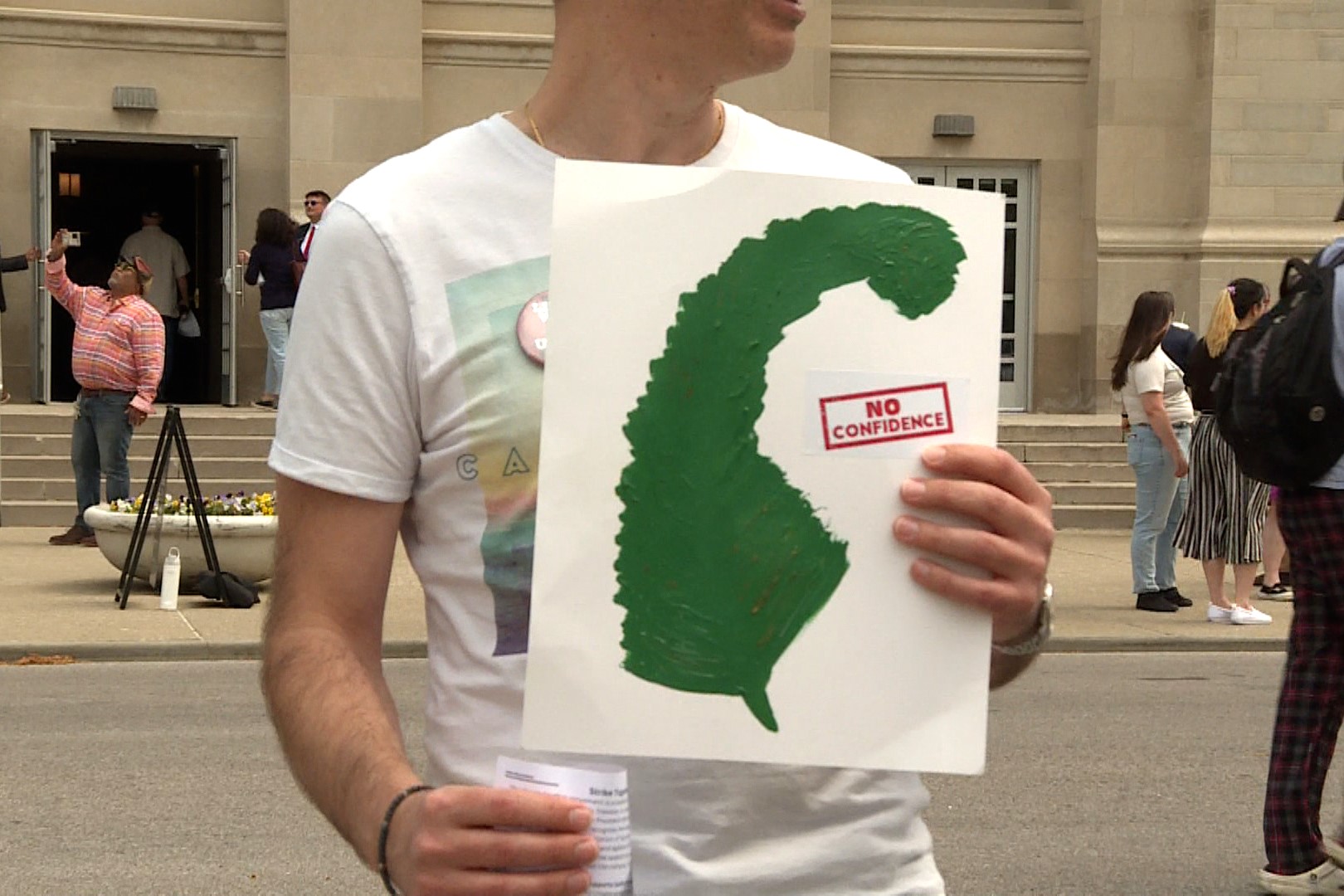
Robinson credited the Bloomington Faculty Council for hosting an engaging and well-conducted meeting.
The meeting was not open to the public, but the Bloomington Faculty Council produced meeting minutes and an audio recording.
Michael Hamburger, professor of Earth and Atmospheric Sciences, chose to speak out at the vote. He said sustainability initiatives have deteriorated significantly, reversing IU’s leadership in the area.
“But that's part of a much bigger picture, where administrative actions have been handled in a chaotic way, with poor communication to other administrators and to faculty,” he said.
Read more: IUPUI Faculty leaders say no confidence vote isn't needed
Hamburger said department chairs and faculty leaders described an “atmosphere of chaos, instability, distrust, secrecy.” These issues are barriers to the mission of IU, he said, which is to educate the next generation of students, create a productive work and research environment, and engage with the community.
Fundamental change is needed, Hamburger said, and faculty are looking for a sincere path forward.
“I think this whole thing places us in a very complicated and very fragile state, and I hope the university and the campus can take it as an opportunity to move forward in a constructive way,” Hamburger said.
Robinson said faculty are going to be persistent about what they want.
“Really, what that is, is to listen to the stakeholders who are most intimately connected with the mission of the university,” Robinson said. “And that's not rocket science.”
Whitten, Shrivastav, Trustees respond to no confidence resolutions
IU declined a request to interview.
Whitten responded to vote in an email Tuesday to faculty. She said the IU community is made stronger through an array of viewpoints and voices.
She encouraged faculty to share their opinions, and she said she pledges to listen and learn. She said she will weigh the guidance of the council and the campus community to achieve a thriving campus.
“Working together, we can achieve even more for this extraordinary institution,” Whitten said. “We can uphold the legacy of Herman B Wells and ensure IU thrives as an international academic leader while being a workplace that embraces respectful collaboration.”
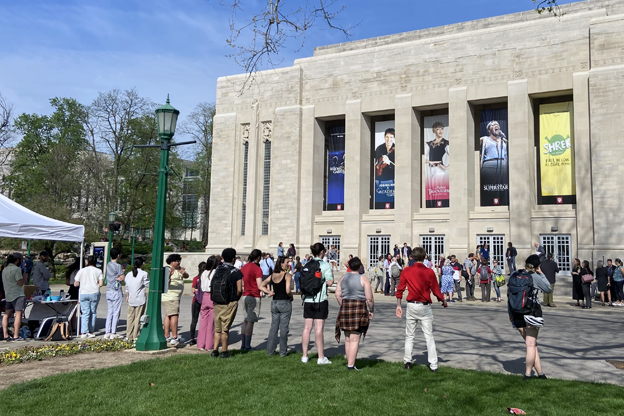
In a statement on its website, the Board of Trustees supported and complemented Whitten. Trustees Chair Quinn Buckner released his own short statement of support for Whitten, calling her an “extraordinary leader.”
"We, the Board of Trustees, stand united in our confidence in President Whitten and the long-term success of IU,” the board said.
Read more: ‘Our Beyoncé of higher education’: IU board awarded President Whitten’s $162k bonus
Shrivastav responded in a Provost’s Column on April 17. He said he takes the concerns of faculty seriously.
He said IU is undergoing significant transformation, like the rest of higher education, and IU’s decentralized model created a culture of competition. Disagreement is inevitable, especially considering “perspectives beyond campus.”
“One of the things I have observed here is our great difficulty in creating a shared narrative or understanding,” Shrivastav said.
He said IU Bloomington, its leaders and legislators need to connect and to balance the need to move quickly with engaging the community.
“And so, to deepen confidence and shared understanding, to ensure a united path to a brighter future, we must do a better job of listening to each other and coming together collaboratively,” Shrivastav said.
Board of Trustees, Indiana lawmakers get the final say
Linda Charnes, professor of English, saw Whitten and the board’s statements the night of the no confidence votes. Whitten’s message is “slightly more conciliatory— but only slightly,” she said, and the board’s was “utterly dismissive of the faculty.”
“Their attitude is we don't matter,” Charnes said. “And the message from the Trustee — from the Chair of the trustees — loud and clear says, ‘This is going nowhere. This will have no impact.’”
Buckner said Whitten is “crucial” to IU’s success.
But Charnes said she’s worked under at least five different university presidents, and there’s no single president crucial to the success of IU. Faculty, graduate students and workers, researchers, students and alumni are crucial to IU's success, she said, not Whitten.
IU Bloomington used to be its own entity, Charnes said, never bending to Indiana’s politics. But she said Whitten and the Board of Trustees have surrendered to Gov. Eric Holcomb and conservative agendas.
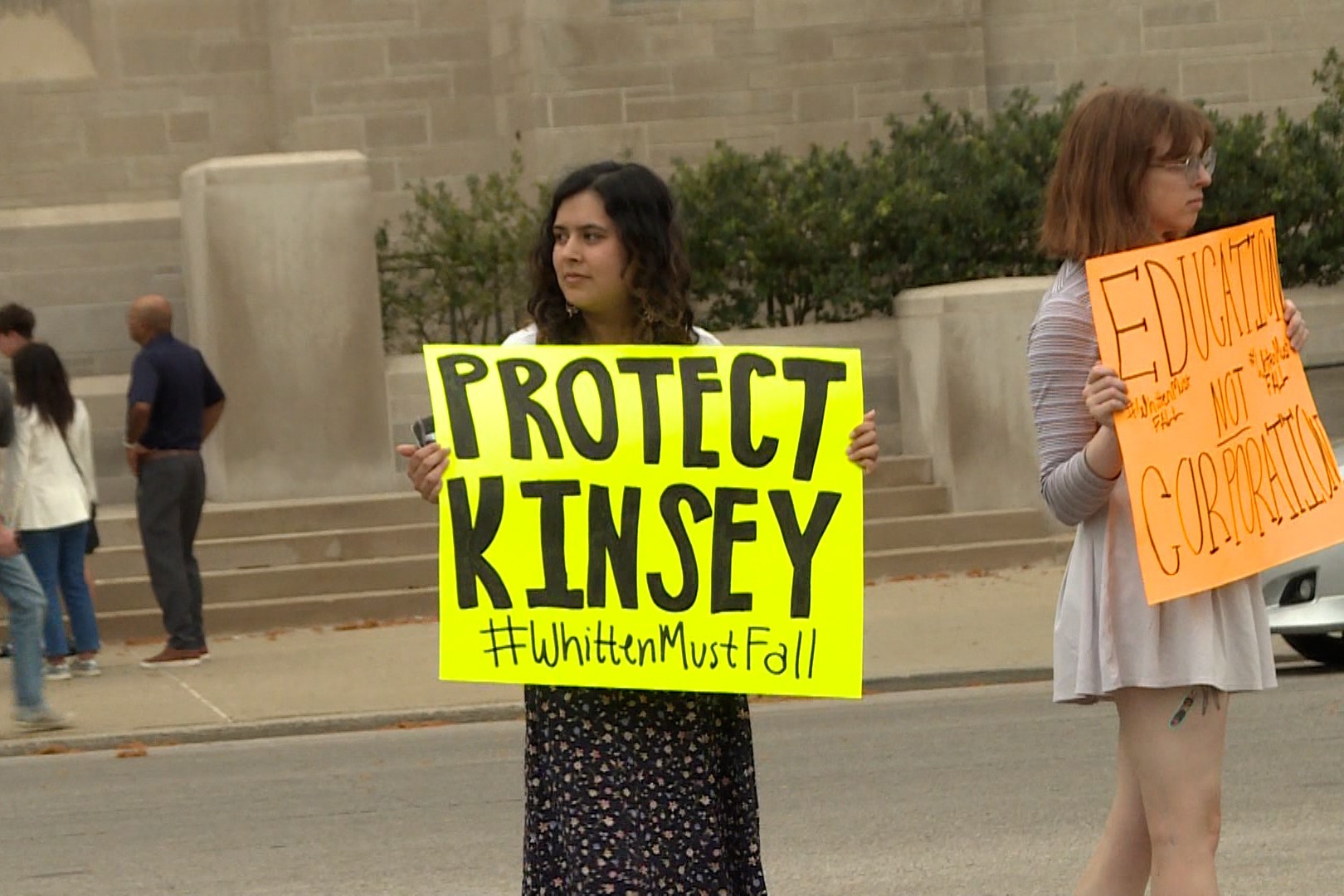
“No president has ever failed, if not refused, to completely stand up to the Indiana State Legislature and say, ‘No, we are Indiana University Bloomington,” Charnes said. “‘We do the same work that's being done at other Research 1 universities all over the country, if not the world. And we will not be policed by whoever happens to be appointed by the legislature to the Board of Trustees.’”
Whitten was the only university president to speak out against Senate Bill 202, a conservative bill that changed the tenure review process.
Read more: Holcomb signs tenure bill into law
Indiana’s legislature has always had control over universities and their Board of Trustees. State Rep. Matt Pierce (D-Bloomington) said Republicans are going after higher education now more than in recent years.
Republicans are “trying to score political points” on college campuses, causing university administrators to not stand up as much as faculty would like.
Typically university administrators prefer to work with lawmakers behind the scenes, because if they anger key legislators, they risk losing funds, Pierce said.
“I think that all across the country, administrators, quite honestly, are running a little bit scared,” Pierce said.
While trustees have the most control over a university and its leadership, Pierce said the legislature can determine how long trustees serve and how much power they have.
“At the end of the day, the legislature has the ultimate authority because they created the institutions of higher education,” Pierce said. “They can uncreate them if they want. They can change the way they operate any way they want.”
But thanks to Herman B Wells, Pierce said IU has a legacy of pushing against the legislature’s attempts to control campus. He advocated for the Kinsey Institute, protected the rights of anti-war protesters and defended co-ed dorms. Today, faculty haven’t seen that kind of leadership.
“We haven't seen that kind of push back or someone with the gravitas that can really tell the legislature you need to back off here,” Pierce said.
Emma Herwehe contributed to this story.
Aubrey is our higher education reporter and a Report For America corps member. Contact her at aubmwrig@iu.edu or follow her on X @aubreymwright.








